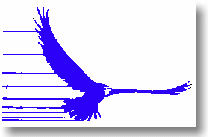

Phone: (08) 98 418 418
 |

Phone: (08) 98 418 418 |
| Compassionate Love |
|---|
|
Friend, I believe that there are few more powerful uses of language than a story.
Because words, ideas and emotions so easily come to life in the rich confluence of
mind, body, spirit, and heart that is a story. Each of us tells stories repeatedly
in our daily living. Most times they are factual, but they are always true revelations
of who we are or wish to be. Aidan Chambers, the writer and academic, once stated that:
"It is not our experiences that matter, but the stories we choose to tell of those
experiences."
When you stop to think about it, each day is rich with experiences, which are the raw materials of stories. For instance, school life, family life, work life, books, newspapers, and television, all bring to us the whole spectrum of the human condition that is worthy of retelling in a story. Today, I'd like to share with you a remarkable true story that reminds us how love CAN PRODUCE MIRACLES. My story centres around a baby boy who was born blind and mentally impaired, and also had cerebral palsy. In fact, he was little more than a vegetable and didn't respond to sound or touch. His parents had abandoned him and the hospital didn't know what to do with the child. Then someone mentioned May Lemke, a nurse who lived near to the hospital. She had already raised five children of her own. May was asked if she would take the infant, but was told "He'll probably die young." May responded to that suggestion by saying, "If I take the baby, he won't die young, and I'll be happy to have him." May named the baby Leslie, and it wasn't easy to care for him. Everyday she massaged the baby's entire body. She prayed over him and cried over him. Uncomplainingly, she poured her love and affection into caring for his frail body. A neighbour told her, "You're wasting your life." Years passed-five, ten, fifteen-but it wasn't until Leslie was sixteen years old that May was able to teach him to stand alone. All this time he had never responded to her. But through all of this May continued to love him and pray over him. Then one day May noticed Les plucking a taut string on a package with his fingers. As she observed what was happening, she began to wonder if Leslie was sensitive to music. In the hope that this was so, she surrounded him with music. In fact, she played every type of music imaginable, hoping that one might appeal to him. Eventually, May and her husband bought a second-hand piano and put it in his bedroom. Then May took his fingers and showed him how to push the keys down, but Leslie didn't appear to understand. Then, one winter night, May awoke to the sound of someone playing Tchaikovsky's Piano Concerto No 2. What May and her husband discovered was beyond their wildest dreams. There, before their very eyes, was Leslie sitting at the piano smiling and playing the piece by ear. Indeed, it was too remarkable to be true, because Leslie had never got out of bed alone before. He'd never even struck a key on his own. Now, he was playing magnificently! At the sight of this amazing scene, May dropped to her knees and said, "Thank you God! You didn't forget Leslie!" Soon Leslie began to live at the piano. He played classical, country, ragtime, gospel, and even rock. It was absolutely incredible! All the music that May had played for him was stored in his brain and was now flowing out through his hands into the piano. Then, when Leslie was 28 years old, he began to talk. He didn't carry on extended conversations; but he did ask questions, gave simple answers and made brief comments. Leslie Lemke has given concerts throughout the United States. In 1984 he gave a command performance by invitation for the Crown Prince and Princess in Norway and also has been on tour in Japan. Today he continues to give concerts but, just as often, plays for free at a school, a nursing home, a prison, or a church. Doctors describe Leslie Lemke as a Savant autistic scholar, a person who is brain damaged, but extremely talented. However, they cannot explain this unusual phenomenon, although doctors have known about it for nearly 200 years. May Lemke can't explain it either. But she does know how the talent can be released-and that is through compassionate love. Friend, there are many important lessons we can draw from the story I've shared with you today: There is the power of love and the inherent worth of every human being. There is also the importance of prayer and trust in God and the fact that we are brought face-to-face with the remarkable, (though often hidden), talents of each individual person. There is also the presence of beauty and mystery in our lives; as well as the absolute necessity of never giving up, no matter how great the odds stacked against us. Perhaps we can all go away from this story today with a genuine determination to make a difference in the lives of others through unconditional compassionate love. I hope so! It may also be that some of you who are reading this column today have a child who may be mentally impaired or disabled in some way. If so, and you would like some further words of encouragement, I invite you to write for a small booklet that could help you. It's titled "Our Child Has a Disability." To receive your complimentary copy, just write to me at: P.O. Box 1540, Albany WA 6331. If you prefer, you can Telephone me on (08) 98 418 418. Email: abl-alb@omninet.net.au |
